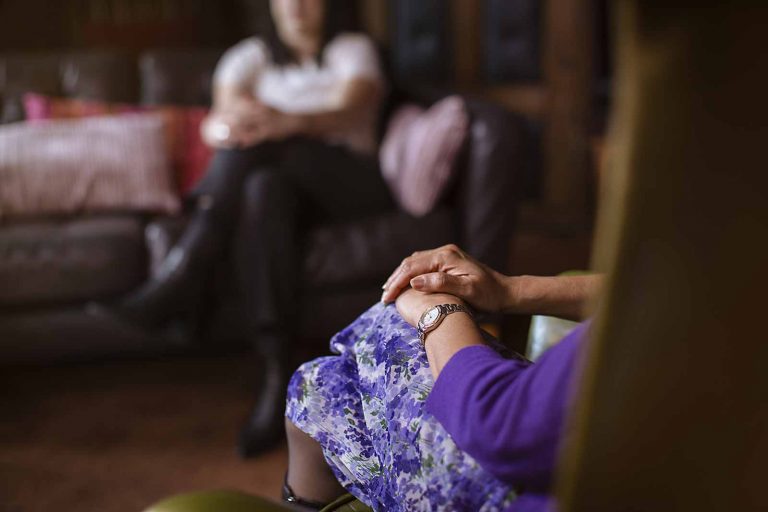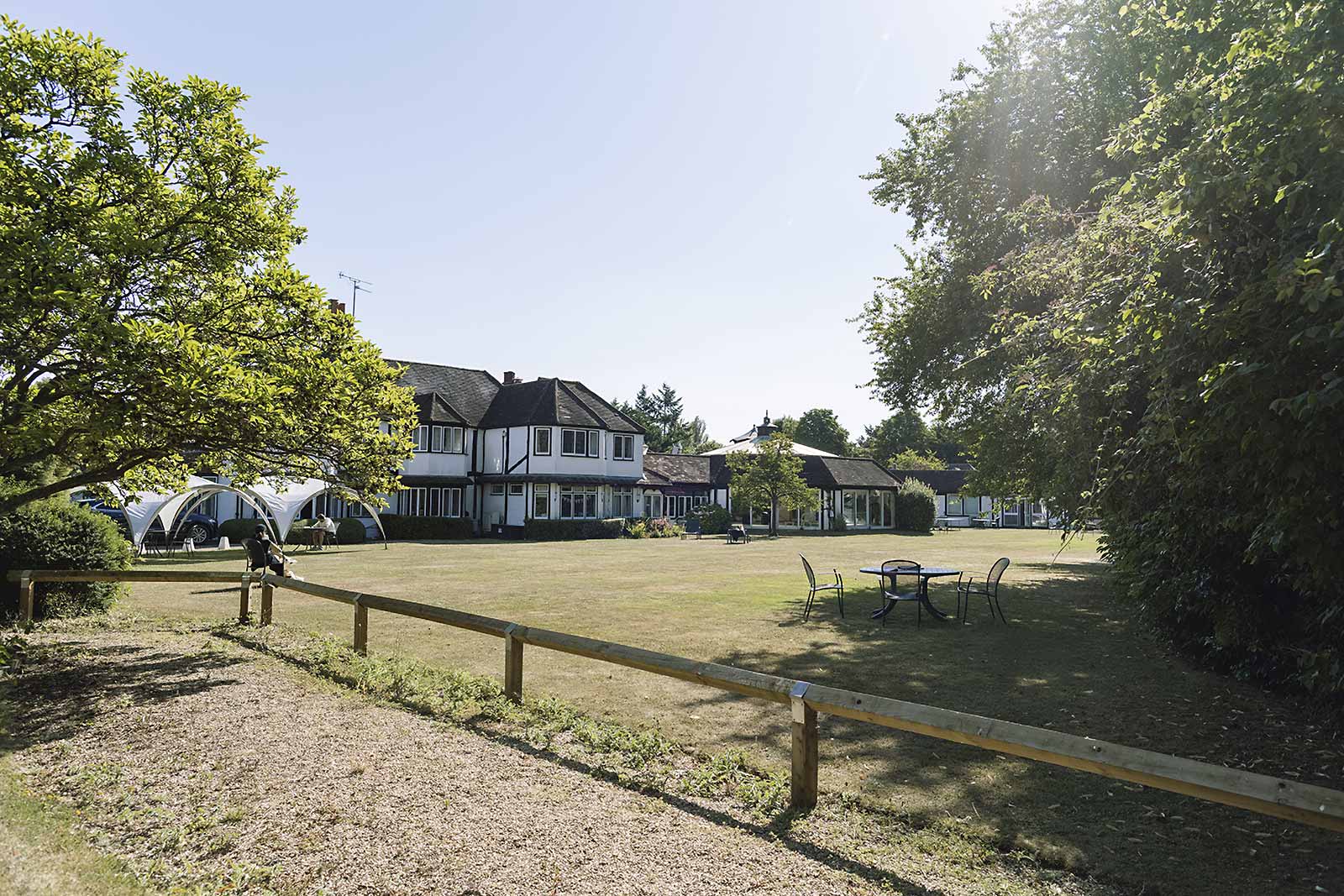Depression
What is depression?
Depression is an illness that can affect the way you eat and sleep, the way you feel about yourself and the way you think about everything.
Depression is more than a passing mood. It is not a sign of weakness, and it cannot be willed or wished away.
Depression affects one in four people at some stage in their lives. At any one time 5% of the population will be suffering from severe depression. Whether you suffer from mild or severe depression, there are always treatments available.
Types of depression
Clinical depression like other illnesses comes in different forms. Three of the most common types of depressive disorders are major clinical depression, dysthymia, bipolar or manic depression. Within each of these types, there are variations in the number, severity and persistence of symptoms.
Major clinical depression is characterised by a combination of symptoms, including a low mood that interferes with the ability to work, sleep and enjoy once-pleasurable activities. Disabling episodes of clinical depression can occur once, twice, or several times in a lifetime.
Dysthymia is a less severe type of clinical depression. It involves long-term (chronic) symptoms that do not disable, but yet prevent the affected person from functioning at “full steam” or from feeling good. Sometimes, people with dysthymia also experience episodes of major clinical depression.
Bipolar Depression (Manic Depression) shows a particular pattern of inheritance. Not nearly as common as the other types of depressive disorders, bipolar disorder involves cycles of clinical depression and mania, or excessive excitability. Bipolar disorder is often a recurring condition. Sometimes the mood switches are dramatic and rapid, but more often they are gradual.
Post Natal Depression is a condition that occurs when a woman becomes depressed after having a baby. Sometimes, there may be an obvious reason, often there is none. It can be even more distressing when a woman has so looked forward to having a baby through the months of pregnancy. She may feel guilty for feeling like this, or even feel that she can’t cope with being a mother. It can last for weeks or several months, sometimes longer.
Around 1 in every 10 women has Post Natal Depression after having a baby.
Everyone has periods in their life when they feel down, but depression is more than just feeling low for a couple of days. Depression can make you feel consistently sad for weeks even months at a time. A number of symptoms can indicate depression.
Symptoms of depression
- Prolonged sadness or unexplained crying spells
- Significant changes in appetite and sleep pattern
- Irritability, anger, worry, agitation, anxiety
- Pessimism, indifference
- Loss of energy, persistent lethargy
- Feelings of guilt, worthlessness
- Inability to concentrate, indecisiveness
- Inability to take pleasure in former interests, social withdrawal
- Unexplained aches and pains
- Recurring thoughts of death or suicide
Causes of depression
Depression doesn’t have a single cause. It can be due to a stressful life event such as bereavement or related to illness or money worries, everyone is different. You may be feeling low after, for example, losing your job, you then spend less time doing the things you enjoy and being with family and friends and this can lead to a downward spiral.
Some personality traits can put you at a higher risk of developing depression, e.g. if you have low self esteem. These personalty traits can be genetic or as a result of experiences in your early years.
You are more likely to experience depression if a family member has experienced it before.
Treatments for depression
If you think you might be suffering from depression it is advisable to talk to your GP in the first instance. They can discuss the treatment options available and refer you to a specialist if appropriate.
At Cardinal Clinic you will assessed by a consultant psychiatrist who will make a diagnosis and discuss a care plan with you. Some patients will require a more intensive approach to treatment and may be admitted as an in-patient. We also have a day patient programme where you can attend for a single day per week or up to three full days per week, and participate in the therapeutic programme that runs throughout the day.. For patients with milder symptoms attending the Clinic as an out-patient and having 1:1 therapy with their consultant and/or therapist will be sufficient. Each patient is different and your psychiatrist will discuss the options with you.
You may be prescribed anti-depressant medication to relieve the symptoms and address the chemical imbalance in the brain as well as psychological therapy to understand the reasons for the feelings.




Medication for depression
Your psychiatrist may prescribe anti-depressant medication. Most people with moderate or severe depression do notice an improvement when they take medication but there are many different types of anti-depressants and you may have to persevere until you find the right medication for you. Your psychiatrist will support and advise you at all times.
You should not stop taking your medication without speaking to your psychiatrist as you may experience side effects.
Therapy approach for depression
Psychological therapy including Cognitive Behavioural Therapy (CBT), Interpersonal Therapy (IPT) and Psychotherapy are all shown to improve the symptoms of depression and look to identify and address the underlying reasons for your depression.
Taking care of yourself is also an important part, experiencing depression can be very difficult, you may find some of the following helpful:
- Talk to someone you trust and let them know how you are feeling
- Contact a specialist group for peer to peer support
- Many people find practicing Mindfulness beneficial
- Look after your physical health
- Keep active, this could be trying new activities or meeting up with friends
- Keeping a mood diary, this can help you see there are good days as well as bad and highlights any triggers that may make you feel better or worse
- Spend time with nature
- Look after yourself and spend time doing activities that you enjoy
Outcomes
If you have found taking an anti-depressant beneficial, your psychiatrist will encourage you keep taking it for at least 6 months after you feel well. This will reduce the risk of another episode. The use of psychological treatments can help you stay well and you may continue to come to the Clinic as an out-patient. Many people with the help of a treatment plan will make a recovery from their depressive episode.
We're here to help you
Call Cardinal Clinic on 01753 910729
Or refer yourself for care, make an enquiry
or arrange a free nurse consultation via our
help hub.
A calm environment dedicated to your care
Rated ‘Outstanding’ for care and overall ‘Good’ by the Care Quality Commission, Cardinal Clinic works tirelessly to offer an elevated patient experience from exquisite and fresh chef-prepared meals, to comfortable and relaxing accommodations. Situated in a private estate in the heart of Windsor’s green belt, residential in-patient care, day care and out-patient services are offered.


